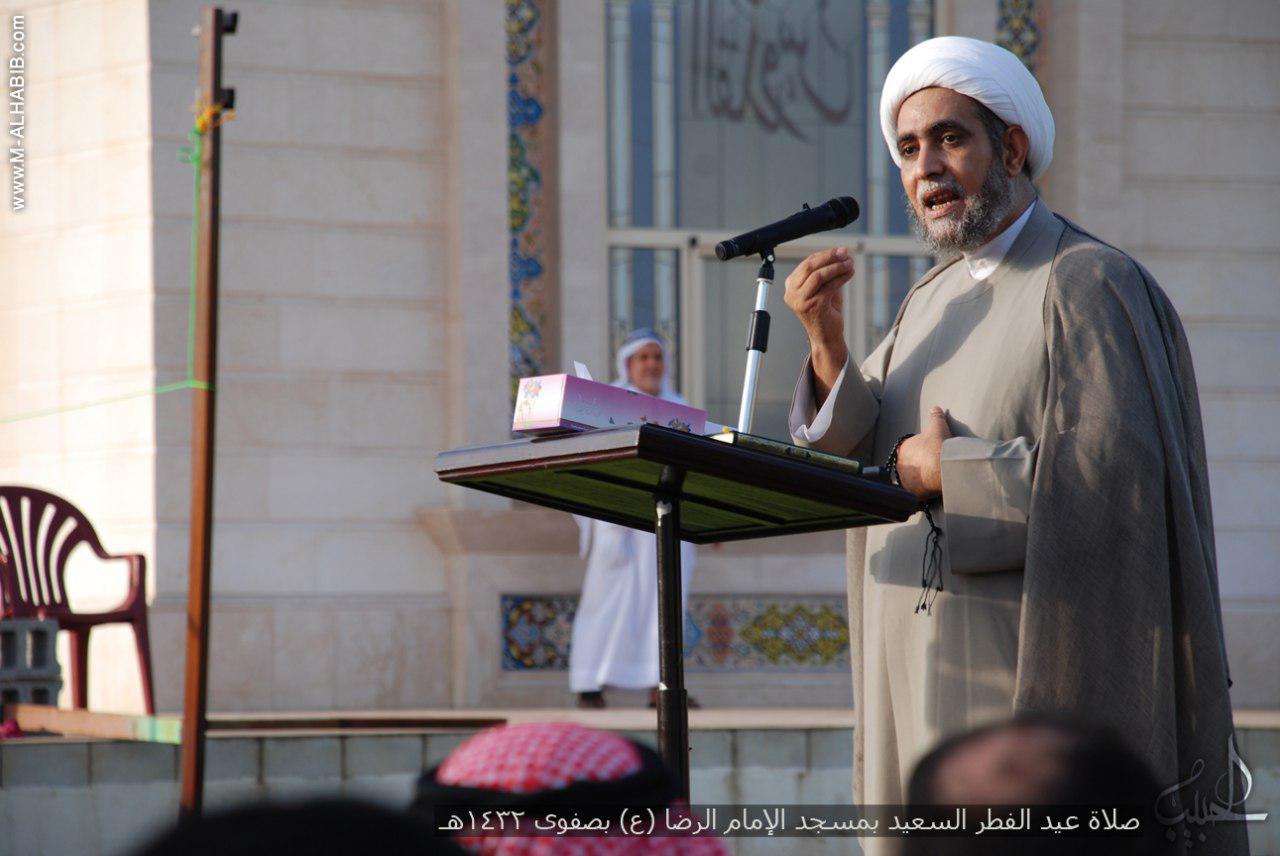
The various forms of political repressions led by Saudi Arabia government against human rights defenders have been noticeably increasing since King Salman was appointed as the King of Saudi Arabia. For one, on January 4, 2018t the human rights activist Sheikh Mohammed Hassan Al-Habib was sentenced to seven years in prison by The Specialized Criminal Court in Riyadh. In fact, the same court itself, The Specialized Criminal Court in Riyadh, acquitted all charges against Sheikh Alhabib and found him not guilty on the 10th of July 2017 after doing 15 hearings in court.
However, The Specialized Criminal Court of Appeal refused to ratify the acquittal and referred the case back to the same court even though that the prosecution had failed couple of times to provide any evidence to support their claims. Sheikh Alhabib then was charged of “sectarianism” and “calling people for sedition”, sentenced to 7 years in prison and very quickly that sentence was ratified by the Specialized Criminal Court of Appeal and became irrevocable.
In Sheikh Alhabib case, the human rights violation was from the beginning. On the 8th of July 2016, Sheikh Mohammed Al-Habib was arrested at the customs, without a warrant, while traveling to Kuwait via the Khafji border. Furthermore,13 days later, on 21 July 2016, Saudi intelligence forces searched his house without a warrant and confiscated several Laptops and mobile phones that belong to his family members.
Initially, He was taken to an unknown destination after the arrest and couldn’t contact his family, call a lawyer or get visitors till four months following his arbitrary arrest. His health status was concerning after the 4-month period of solitary confinement.
Sheikh Al-Habib was deprived of his basic right to consult an attorney during the period of the investigation, which lasted for several days. A lawyer could only be appointed at the seventh hearing in the court, which is an obvious violation of the domestic and international law.
Sheikh Alhabib, a prominent cleric from Qatif, has called in a number of his speeches to carry out political reforms, to allow freedom of expression and to release detainees who’ve been detained due to exercising their right of expression. Additionally, Sheikh Alhabib supported the legitimate popular demands launched in 2011 in the Eastern Province in Saudi Arabia. The Special Criminal Court – a notorious court established to adjudicate cases of terrorism – has convicted Sheikh Alhabib for inviting people to sedition and sectarianism based on parts of several speeches he delivered after several bombings incidents in Shia mosques and Husayniyhs. Sheikh Alhabib called for the government to decide to take decisive decisions to work to change the culture of hatred and sectarianism against Shiites which could be found even in school curriculum in Saudi Arabia. Furthermore, Sheikh Alhabib criticized some of the government clerics who’ve shown fanaticism against Shiites. Also, Sheikh Alhabib demanded for Shi’a to be officially recognize as part of the country’s population. In fact, according to Saudi religious school curriculum and some Saudi Sunni clerics Shi’a citizens are considered to be infidels.
Saudi Crown Prince Mohammed bin Salman promised to disengage the country from the extremist practices. Indeed, during The Future Investment Initiative conference opening which was in October 2017 Mohammed bin Salman said that he would “destroy” them, the extremists. However, nearly two months later the Specialized Criminal Court in Riyadh used parts of Islamic religious texts according to a very extreme understanding to justify of the conviction of Sheikh Al-Habib, in addition to the use of the words of some of the Sunnis’ clerics who are also known to be among the extremists. A Such act confirms that the Crown Prince’s promises to return his country to the center of Islam are just a promotional operation and have not translated in practice. Actually, one of the quotes that were cited by the judge to justify his decision to convict Sheikh Al-Habib is a quote from the book of Shariah law written by Taqi Aldien Al-Harrani, known as IbnTaymiyyah, as stated in the judgement of the court: “sins that do not have an estimated punishment or expiation…are punishable by condescension, punishment and discipline , as far as the ruler sees appropriate according to the case of the sinner, if he was an addict to adultery, then the punishment is intensified, unlike the one who committed a minor sin” Moreover, the Sunni clerics whose testimonies were cited to justify the sentencing believe that disagreement with the government’s policies equal disobeying the ruler which, in their opinion, requires imprisonment and repression. According to the organization’s follow-up on the human rights situation for the trials of several activists and opinion-makers in the Specialized Criminal Court, the judges have enormous amount of hard line religious statements and texts that are used to convict the detainees.
The trial of Sheikh Alhabib comes during a political repression against journalists, opinion leaders, clerics, civil activists and human rights defenders. Right now, many activists are in jail and behind bars while others are forbidden to travel outside the country or threatened to be arrested. Also, many of them are undergoing unfair trails, which highlight the harsh eradication approach that Saudi Arabia is exerting towards the civil society.
The European Organization for Human Rights believes that the conviction of human rights defender Sheikh Mohammed Alhabib of “sectarianism” and “calling people for sedition!” is not based on real evidence, but rather a retaliation for his rightful demands; things like calling the government to release all detainees who were imprisoned on basis of freedom of expression, requesting the government to take official steps to fix the current religious curricula and criticizing the attitudes of Sunnis’ government clerics towards Shiites. The organization also asserts that his trial was full of legal violations of domestic and international law.
